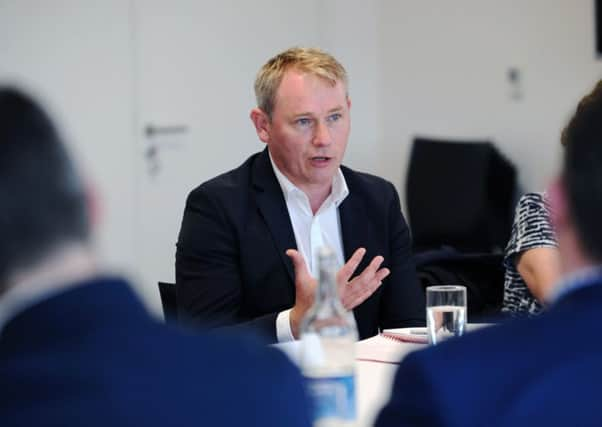An inclusive growth strategy to boost skills and training


This is why Leeds City Council is pursuing an agenda of “inclusive growth” through a series of policies designed to reduce inequality in education, skills, work and the environment, now formalised in the newly published consultation paper, ‘Leeds Inclusive Growth Strategy’.
CEG is backing the agenda by developing bold new initiatives to boost skills and training in the city, including the Forging Futures Campus with Wates Construction at the £400m Kirkstall Forge regeneration site, pictured. The pioneering skills programme has been developed with Leeds College of Building and brings construction-themed experience and vocational training to young people.
Advertisement
Hide AdAdvertisement
Hide AdJon Kenny, development director at CEG, said: “Ultimately, we will help to train Leeds’s future architects, bricklayers, civil engineers, joiners, plumbers and electricians through this programme. The Forging Futures Campus will showcase a pool of talent in action for businesses to be able to visit, monitor and select their apprentices from.”
CEG formed a partnership in 2015 with the Leeds branch of social enterprise Skill Mill, introduced by Leeds City Council, to provide training and support for young people who have been involved with the Youth Offending Service.
Together with college and mentoring support, they have worked on tasks such as painting, clearing waterways, vegetation and materials management, gaining valuable skills that will prepare them for further training and employment. Some have already secured apprenticeships with sub-contractors at the Kirkstall Forge site and external employers. These headline initiatives are supporting the city’s efforts to overcome significant challenges in its labour market to meet the strong jobs forecast in the new report.
The city region’s workforce is becoming better qualified but still lags behind the English average. The growth in the working age population is also expected to slow over the years, according to the CEG Cambridge Report.
Advertisement
Hide AdAdvertisement
Hide AdLeeds’s future recruitment needs will be most strongly felt in knowledge-intensive business services, highly skilled roles that are least at risk of automation. The city’s ability to grow and become more productive will be influenced by its ability to obtain this skilled labour.
In its favour, the city has very strong educational institutions and public-private initiatives to develop the workforce, such as the digital skills action plan and the Forging Futures Campus.